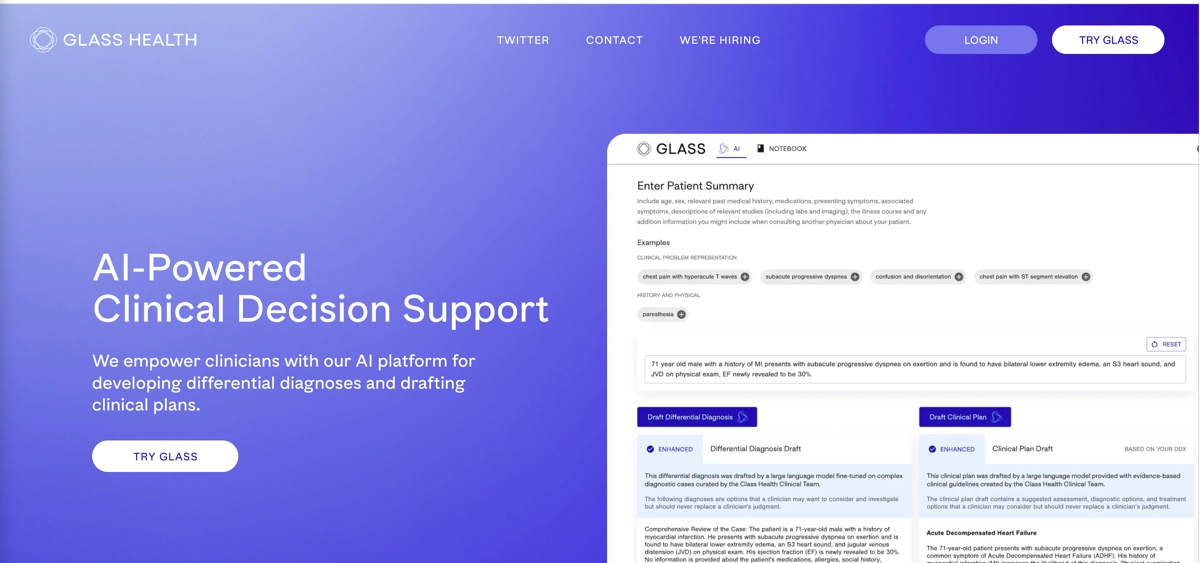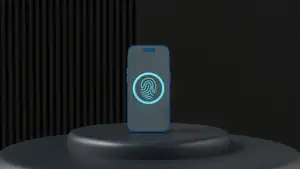
AI for Suggesting Medical Diagnosis Being Developed By Glass Health
A company called Glass Health is currently developing a powerful AI tool that medical professionals can use to help suggest diagnoses for patients in as little time as possible. The idea first came about when Dereck Paul, a US San Francisco medical student, noticed that innovation in medical software had not reached anywhere near the level that several other major sectors had achieved, such as aerospace and finance.

His goal was to ensure that doctors have access to state-of-the-art software to give their patients the best possible care, prioritizing patients' and doctors' needs over insurance companies and hospital administrators. He decided to form Glass Health in 2021 after teaming up with one of his friends, Graham Ramsey, an engineer from a women's health tech company called Modern Fertility.
Their pioneering idea was to create a simple and effective software system similar to a digital notebook that could collect, consolidate, and share their different methods for detecting and treating medical conditions throughout their careers. Ramsey even referred to it as a "personal knowledgement management system" for educating oneself and practising the art of medicine.
It could help reduce the burden on healthcare systems worldwide, many of which are already at full capacity or worse, by helping to speed up the process of giving more accurate diagnoses based on the information fed into the system. It can also help reduce fatigue and burnout experienced by people at all levels of the medical profession. It will also improve healthcare and the practice of medicine in many other ways.
Things started to take off when the company embraced the growing trend and shifted towards generative AI. Glass Health utilizes an LLM (Large Language Model), which can be likened to the software used in OpenAI's ChatGPT. It is able to generate accurate diagnoses and the appropriate treatment options that may be available based on the evidence the system was fed.
For example, typing in phrases such as a '55-year-old male with a history of diabetes and hyperlipidaemia presents with diaphoresis and acute-onset chest pain', or a '72-year-old woman with a history of myocardial infarction presents with progressive dyspnoea on exertion,' and the new AI-powered system pioneered by Glass Health will then deliver the most effective prognosis and suitable clinical strategy for treating the patient.
It's also able to provide brief draft case assessments for medical professionals to review, including useful explanations about possible relevant diagnostic studies. In short, the AI-powered medical tool developed by Glass Health is one of the most exciting new developments in practising medicine.
The system is always evolving, and it has already become one of the best systems of its kind anywhere in the world as more and more doctors continue to adopt this innovative and ground-breaking new solution to medical care. However, the information provided by Glass Health's new AI system shouldn't be interpreted by anyone in the medical profession who uses it as definite or prescriptive in the answers it relays. Instead, it should still be seen as more of a guide until the system is perfected.
While some people are happy to embrace the new technology and use it to their advantage, others in the medical profession still have reservations. Users/patients can even request their medical background details that are currently stored on the system be removed at any time.
As the company hones its AI-powered tool, a growing number of doctors and health systems around the world are beginning to adopt the system. It will continue to be fine-tuned over the coming years and will likely become more mainstream in the battle to diagnose and treat patients more efficiently and cost-effectively than ever before.









